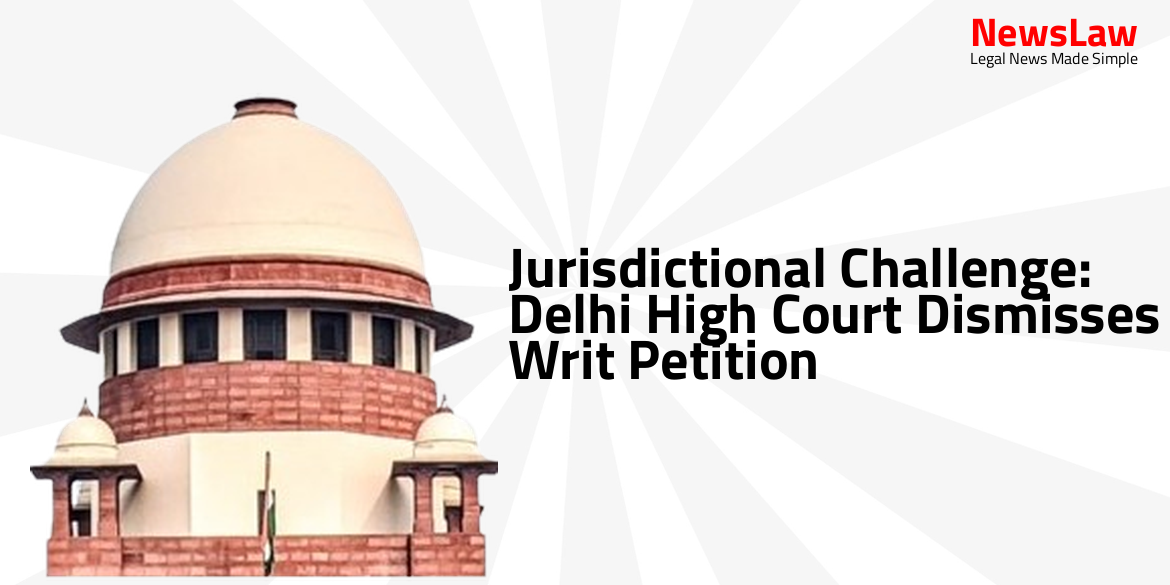In a recent legal development, the Delhi High Court addressed a jurisdictional challenge in a case involving the Central Government and Vikram Structures Pvt. Ltd. The Court’s decision emphasized the importance of territorial jurisdiction and the application of relevant legal provisions. Learn more about the Delhi High Court’s ruling on this significant matter.
Arguments
- Learned counsel for the petitioner had ample time to provide relevant case law to support the maintainability of the petition but failed to do so.
- The respondent’s counsel, after being duly notified, raised the issue of territorial jurisdiction and contended that this Court is not the appropriate jurisdiction for the present Writ Petition.
Analysis
- Jurisdiction cannot be solely based on the location of seat or head office in Delhi.
- Cause of action regarding alleged acts occurred outside the Court’s territorial jurisdiction.
- Meaning of ’cause of action’ under Article 226(2) is as defined in Section 20(c) of CPC.
- Central Government directed to use Section 213(b) of Companies Act, 2013 for investigation.
- Appointment of Inspector(s) for investigating related parties’ affairs of Vikram Structures Pvt. Ltd.
- Liquidator of the company instructed to cooperate in providing necessary documents.
- Consideration of principles of natural justice in the proceedings.
- No mention of any significant impact on persons or authorities within the Court’s jurisdiction.
- Supreme Court can exercise jurisdiction over the entire country.
- Jurisdiction of High Courts is limited to the territorial jurisdiction of the State(s) of which it is the High Court.
- High Courts can pass orders impacting people within their territorial jurisdiction.
- High Courts do not have pan-India jurisdiction.
- The Regional Office of the respondent is in the State of Karnataka.
- The petitioner has effective remedies to approach the appropriate forums.
- The Doctrine of Forum Conveniens can be invoked to refuse the exercise of discretionary jurisdiction by the Court.
- Reference was made to a Supreme Court decision regarding the situs of office not constituting a cause of action.
- The fact that the Ministry of Corporate Affairs can appoint the SFIO from Delhi does not establish territorial jurisdiction for the present case.
- The Writ Petition was dismissed for lack of territorial jurisdiction.
Case Title: MEGHANA T. V. Vs. UNION OF INDIA (2024:DHC:4566)
Case Number: W.P.(C)-6726/2024



